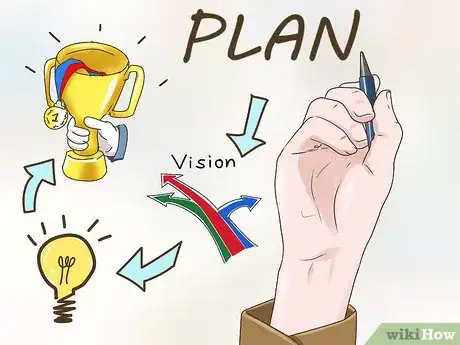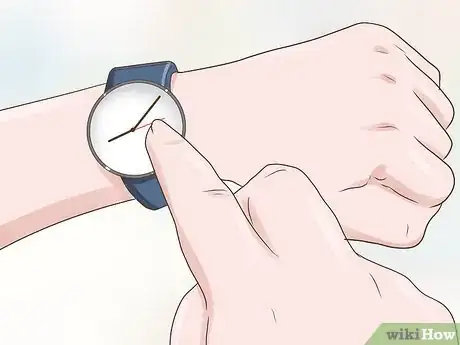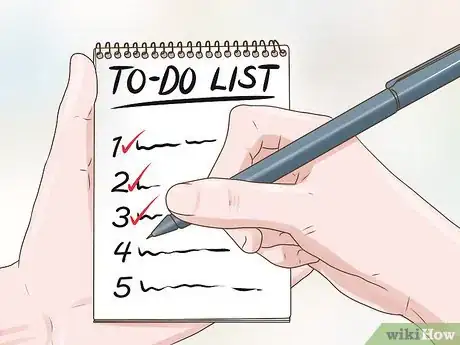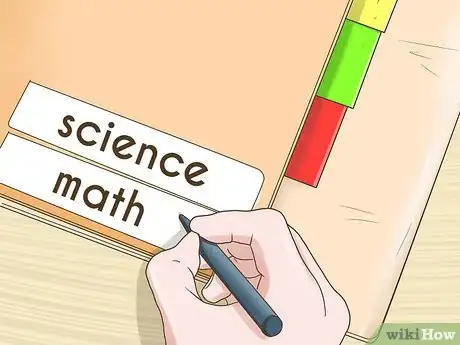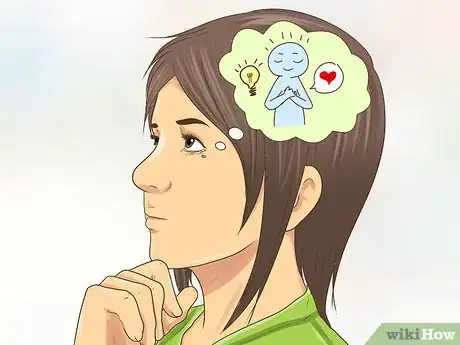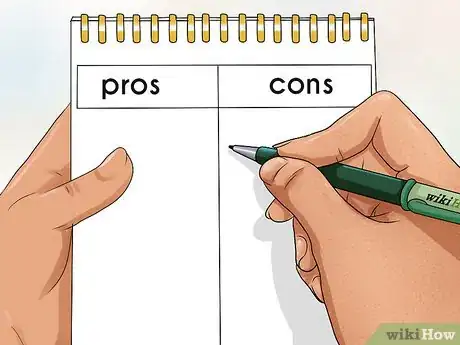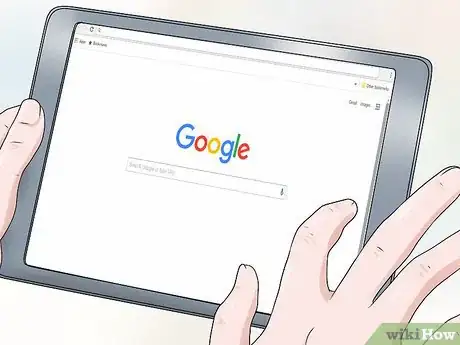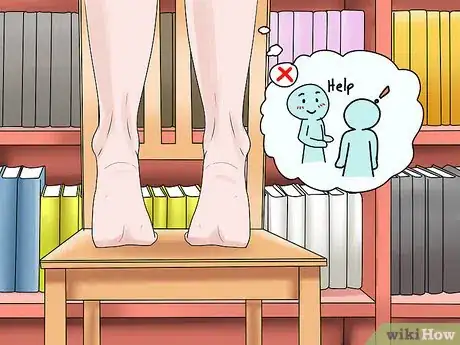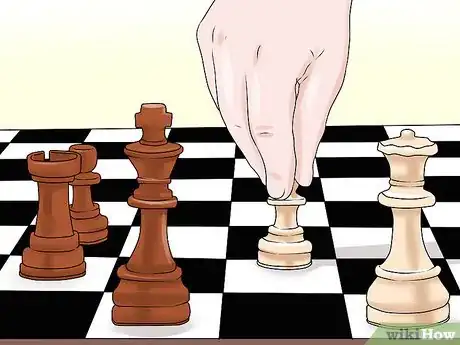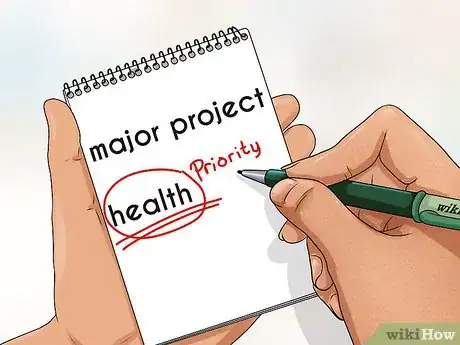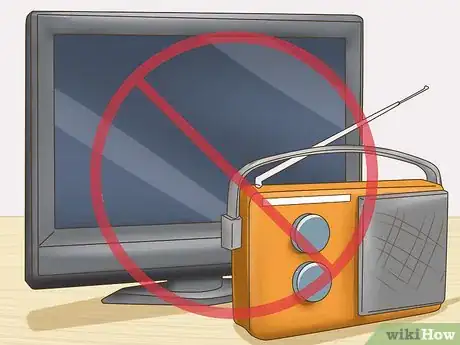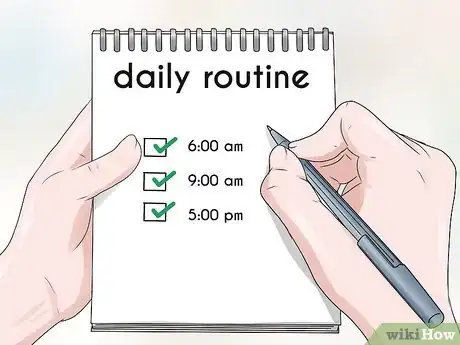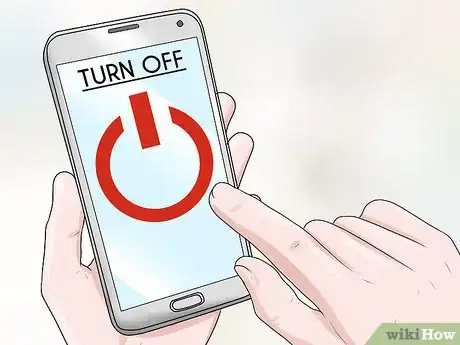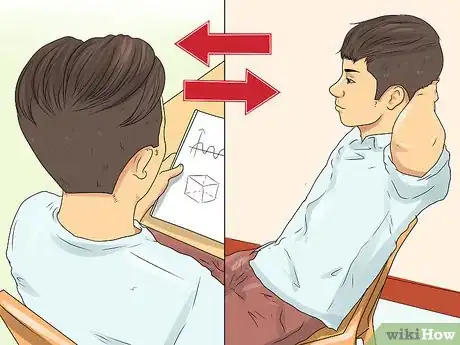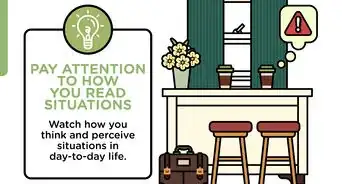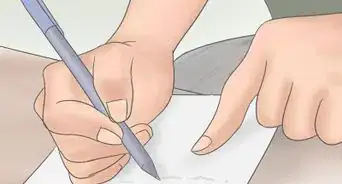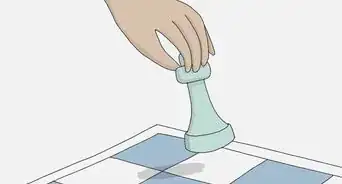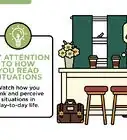This article was co-authored by Meredith Walters, MBA. Meredith Walters is a Certified Career Coach who helps people develop the skills they need to find meaningful, fulfilling work. Meredith has over eight years of career and life coaching experience, including conducting training at Emory University's Goizueta School of Business and the US Peace Corps. She is a former Member of the Board of Directors of ICF-Georgia. She earned her coaching credentials from New Ventures West and a Master of Business Administration from the University of San Francisco.
There are 8 references cited in this article, which can be found at the bottom of the page.
This article has been viewed 23,306 times.
Executive function skills are necessary in completing life’s most vital tasks—like making decisions, staying organized, or meeting deadlines. Fortunately, even if you're struggling with executive function problems, you can develop them over time. Our how-to guide will help you learn strategies to manage your attention and decision-making so you can improve your executive function skills!
Steps
Keeping Organized
-
1Plan ahead. A fundamental step in improving organizational skills is to learn to plan ahead and avoid procrastination. When given an assignment with a deadline, do not wait until the day before to complete it. Instead, structure your days so that you are completing bits of the assignment each day. This will ensure that you do not feel overwhelmed in the days leading up to the due date, and make it easier if something unexpected comes up that prevents you from working on the project when you planned to. This also ensures that you are turning in your best and most thorough work.[1]
- Put your deadlines on your calendar as well as all of the task necessary to complete it. Set reminders for yourself so that you keep track of your progress. Make sure to give yourself more time to complete the project than you think you will need.
- You can use a physical calendar or an online one like Google.
-
2Keep track of time. Another necessary executive function skill is time management. Sometimes, you may find yourself becoming so consumed with a task or hobby that you forget to attend to your other responsibilities. Set alarms for yourself so that you remind mindful of the other things that you need to do. Wear a watch to help you keep track of time or check the time on your phone regularly.[2] However, you should avoid checking the time on your phone if it is a common distraction for you. Use a watch or clock instead.
- Make sure that you arrive at least five minutes early to a meeting or to class. Be sure to account for travel time plus any setbacks you may encounter along the way.
- Wake yourself up in time to be able to get ready, have breakfast, and prepare for your day and allot for a few minutes of spare time.
- Keep yourself on a schedule daily so that you become accustomed to the routine.
Advertisement -
3Create to-do lists. Another helpful organization skill is to create a to-do list each day or week to help yourself remember the things that you must complete for that day. It can be particularly useful to create the list the night before so that you do not enter into the day blind, but instead prepared and aware.[3]
- Consider prioritizing the tasks using numbers. For instance, the most important and pressing task could be labeled as “#1”. Transfer anything that does not get done onto your list for the following day.
-
4Minimize clutter. Clutter can drastically and negatively affect your ability to be organized. Take some time to throw away items that you no longer have a use for. Clean up your space and consider donating any items that you no longer want. Don’t purchase new items for your space without clearing out all clutter first.[4]
-
5Organize your space. After you have decluttered your space, begin to organize it. Keep any files that are alike in the same space. Consider color coding you planner or notebooks and labeling your materials.[5]
- Digitize any paperwork that you are looking to get rid of. In many cases, you will need to have an original copy of certain paperwork, but some things can be scanned and kept on an online file so that you can free up some of your space.
- If you are organizing your office space at work, do this on a day off of work so that it will not interfere with your work responsibilities. You may even bring a friend along for help and company.
Developing Critical Thinking Skills
-
1Think for yourself.[6] Perhaps the most important critical thinking skill that exists is being able to think and make decisions independently of others. Though you should certainly heed the advice of others that are wiser than you, at the end of the day, it is your life to live and you have to make peace with that. Don’t allow your friends to tell you how to feel or what to do.[7]
- Keep in mind that you will receive lots of unsolicited advice in your lifetime. Consider the source of the advice to determine if it is someone you might want to listen to. For example, if they have lots of experience with the matter or have given you good advice in the past, then it might be worth listening to them.
- Make sure that you take your parent’s advice into consideration, but also note that you don’t have to do everything they say. You should keep your grades up and your room clean, but they can’t tell you where to go to college or where to work after graduation. You can be respectful while still making major decisions about your life.
-
2Consider the perspective of others. Another skill necessary in critical thinking is to think beyond yourself. If in developing a plan that will affect other people and you do not consider those people, then you are not thinking critically about the issue. When making a decision that will not affect only you, put yourself in the shoes of others so that you can identify a plan that will work for all. It can also be helpful to talk with them directly about what you are considering, or at least talk with a trusted advisor.
- For instance, if you are considering quitting your part time job because you don’t get along with a coworker, think about how this will affect your family and your other coworkers, as well. Though you may be happy temporarily, you may also have to ask your parents or friends for money, which will likely stress them out.
-
3Consider the consequences of your actions. Remember that every action, even a small one, has a reaction. It is imperative that you consider the potential effects of any decisions that you plan to make so that you make the decision that will be best for you. Consider making a pros and cons list before making major decisions. You may even want to enlist the help of a trusted friend. Ask them to look over your pros and cons list and to add to it if possible.
-
4Do your research. A major part of developing this critical thinking skills is by doing your research on any topic or issue that you are interested in. In this age of technology, information is literally at your fingertips. Take advantage of it and expand your knowledge by researching topics of importance to you. The more you know about something, the better able you will be to make decisions and develop your opinion.[8]
- One way to do this is to simply google information you are interested in. For instance, if you want to know more about a certain war or country, google it and read a few articles about it.
- Read the news in as unbiased a way as possible. Rather than relying on one news source, consider reading several different ones on the same topic so you don’t gather a biased perspective.
-
5Try to solve a problem without asking for help.[9] Another way to develop your critical thinking skills is by problem solving. If you are accustomed to asking your parents or friends for help with certain things, try to instead solve the problem yourself sans advice. Take some time to first identify the issue, consider several possible solutions, and then select and execute the solution that you think is best.
- For instance, as a very basic example, if you typically ask someone else for help getting something off of a top shelf that you can’t reach, consider ways that you could get the item yourself, like using a chair to elevate yourself.
- After making a decision and carrying it out, be sure to reflect on the outcome. See what you can take away from the experience to help you in the future.
-
6Keep your mind active. In order to make sure your mind is working at maximum capacity, you must exercise it and keep it active just as you would your body. Play board games with your family and friends. Download strategy or logic games to your phone and play them throughout the day to keep your mind going. Journal out your thoughts at the end of each day to keep your mind sharp, as well.[10]
- Consider also carrying around sudoku or crossword puzzles in your bag.
Maintaining Self Control
-
1Set priorities. A key starting point in improving your executive functions can be achieved through setting priorities. When making a to do list of your day, assess which tasks should take precedence over others and execute accordingly. Recognize also that you will need a certain degree of mental flexibility as priorities shift. For example, if you are working on a major project for the day, but suddenly become ill, your health should take priority. You cannot work at your optimal level if you are sick or incapacitated.[11]
-
2Minimize distractions. Maintaining self control is much easier when distractions are not present. If you work best when there is no noise, then do not complete tasks when the radio or television is on. Similarly, if you work best alone, then don’t invite friends over to do homework or work on projects together. Work to actively minimize the things that distract you from work when you are in crunch-time or need to focus.[12]
- Try out some different things to see what works better for you. For example, some people find that soft music or ambient noise helps them focus, while other people might find it distracting. You might also find that you work better in a group or by yourself.
-
3Control your impulses. This can be achieved through establishing a daily routine. The more settled in you become to a routine, the less likely you are to deviate from it. Set aside time each day to complete the tasks that you must complete, while still allowing yourself some free time to indulge in your interests.[13]
- Reward yourself after completing a task.
-
4Use peer monitoring. Your peers can be used to help hold your accountable to your various responsibilities and assignments. When you are in crunch time and need to complete an assignment through remaining focused, have a friend call you every hour or so to monitor your progress. You will be driven to have a positive and productive report for them and are more likely to remain focused.[14]
- You might also invite them over so that they can ensure that you aren’t getting distracted.
-
5Block access to short term temptations. Many distractions and temptations exist that can tend to get you off track from productivity. Deactivate your social media so that you don’t receive notifications. Turn your phone off or put it on do not disturb so that you are not distracted by calls or texts. [15]
- Let your friends and family know that they should only contact you during working hours if there is an emergency. Then, allow yourself some time later in the day to catch up on texts, calls, and social media.
-
6Manage negative emotions associated with certain tasks. Certain tasks may be so mundane or stressful to you that you feel anxiety when preparing to complete them. Try taking a few moments to discover why the task is making you feel anxious and if there is anything you can do to make yourself feel more comfortable. Then, take a few moments to breathe deeply to destress yourself and then push through the assignment. Give yourself short breaks after completing a certain amount of the work or when you begin to feel overwhelmed.[16]
- Take a short walk outside or have a snack.
Expert Q&A
-
QuestionWhat can I do to improve my executive function?
 Meredith Walters, MBAMeredith Walters is a Certified Career Coach who helps people develop the skills they need to find meaningful, fulfilling work. Meredith has over eight years of career and life coaching experience, including conducting training at Emory University's Goizueta School of Business and the US Peace Corps. She is a former Member of the Board of Directors of ICF-Georgia. She earned her coaching credentials from New Ventures West and a Master of Business Administration from the University of San Francisco.
Meredith Walters, MBAMeredith Walters is a Certified Career Coach who helps people develop the skills they need to find meaningful, fulfilling work. Meredith has over eight years of career and life coaching experience, including conducting training at Emory University's Goizueta School of Business and the US Peace Corps. She is a former Member of the Board of Directors of ICF-Georgia. She earned her coaching credentials from New Ventures West and a Master of Business Administration from the University of San Francisco.
Certified Career Coach Try to think about things for yourself so you form your own opinions on things.
Try to think about things for yourself so you form your own opinions on things.
References
- ↑ https://www.brainbalancecenters.com/blog/2014/03/improving-executive-function-skills/
- ↑ https://signeteducation.com/blog/how-to-improve-executive-functioning-skills
- ↑ https://signeteducation.com/blog/how-to-improve-executive-functioning-skills
- ↑ https://signeteducation.com/blog/how-to-improve-executive-functioning-skills
- ↑ https://signeteducation.com/blog/how-to-improve-executive-functioning-skills
- ↑ Meredith Walters, MBA. Certified Career Coach. Expert Interview. 22 November 2019.
- ↑ https://collegeinfogeek.com/improve-critical-thinking-skills/
- ↑ http://www.lifehack.org/articles/featured/10-skills-you-need-to-succeed-at-almost-anything.html
- ↑ Meredith Walters, MBA. Certified Career Coach. Expert Interview. 22 November 2019.
- ↑ http://www.usnews.com/education/blogs/college-admissions-playbook/2014/06/23/5-tools-to-develop-critical-thinking-skills-before-college
- ↑ http://developingchild.harvard.edu/science/key-concepts/executive-function/
- ↑ https://www.psychologytoday.com/blog/dont-delay/201302/strategies-strengthen-executive-function
- ↑ https://www.psychologytoday.com/blog/dont-delay/201302/strategies-strengthen-executive-function
- ↑ https://www.psychologytoday.com/blog/dont-delay/201302/strategies-strengthen-executive-function
- ↑ https://www.psychologytoday.com/blog/dont-delay/201302/strategies-strengthen-executive-function
- ↑ https://www.psychologytoday.com/blog/dont-delay/201302/strategies-strengthen-executive-function
